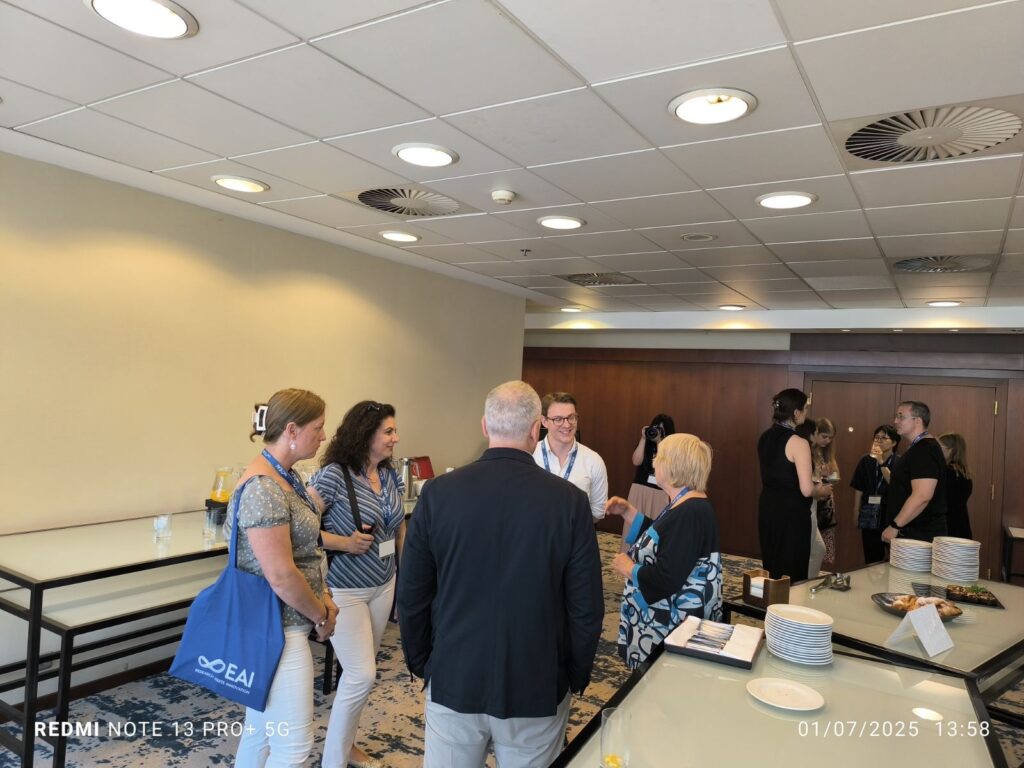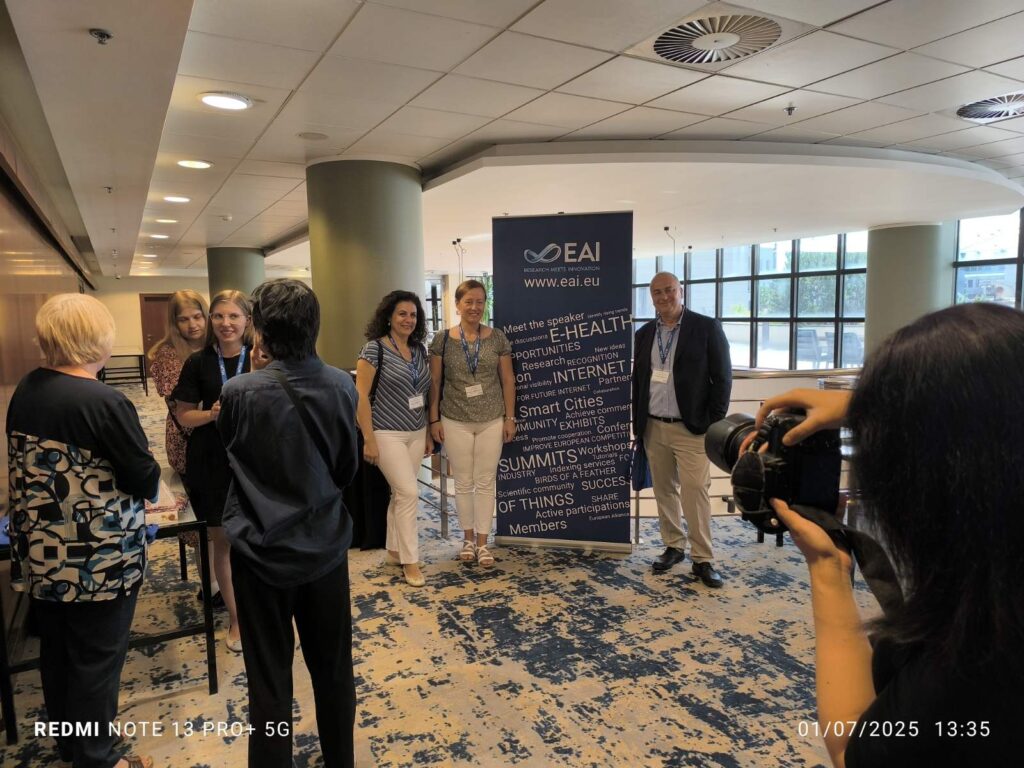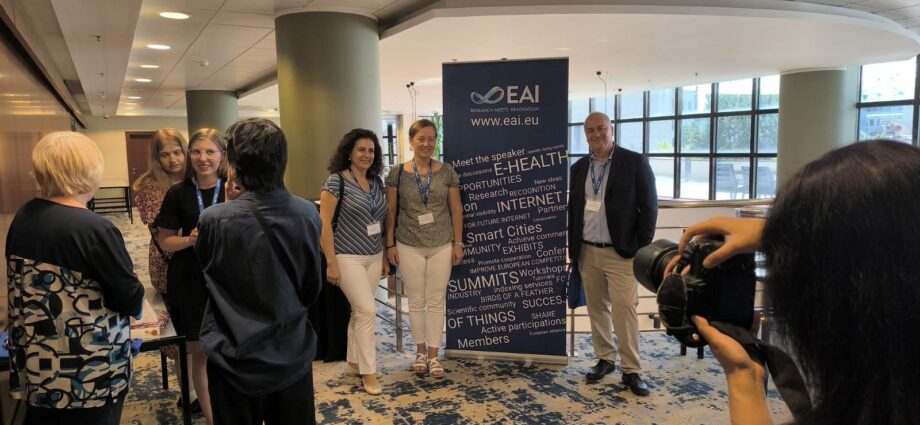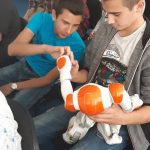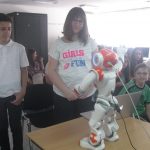During the 4th EAI Conference on Computer Science and Education in Computer Science, held from 1st until 3rd of July, in Bratislava, Slovakia, Vladimir Trajkovik as a keynote speaker, presented the methodology and result from the implementation of the project SHIELD: Simulation game-based Hands-on Instruction for Enhancing Cybersecurity Learning and Development. Maja Videnovik and Mirjana Jankulovska as co-authors of the development, implementation and research concerning this methodology were also present at the conference. The project is part of the KnowCyber initiative, implemented within the Cyber Balkans project, funded by the European Union, aiming to deepen digital literacy among both teachers and students, especially in the area of cybersecurity and digital well-being, by combining digital storytelling, AI tools, game elements, and learning through play.
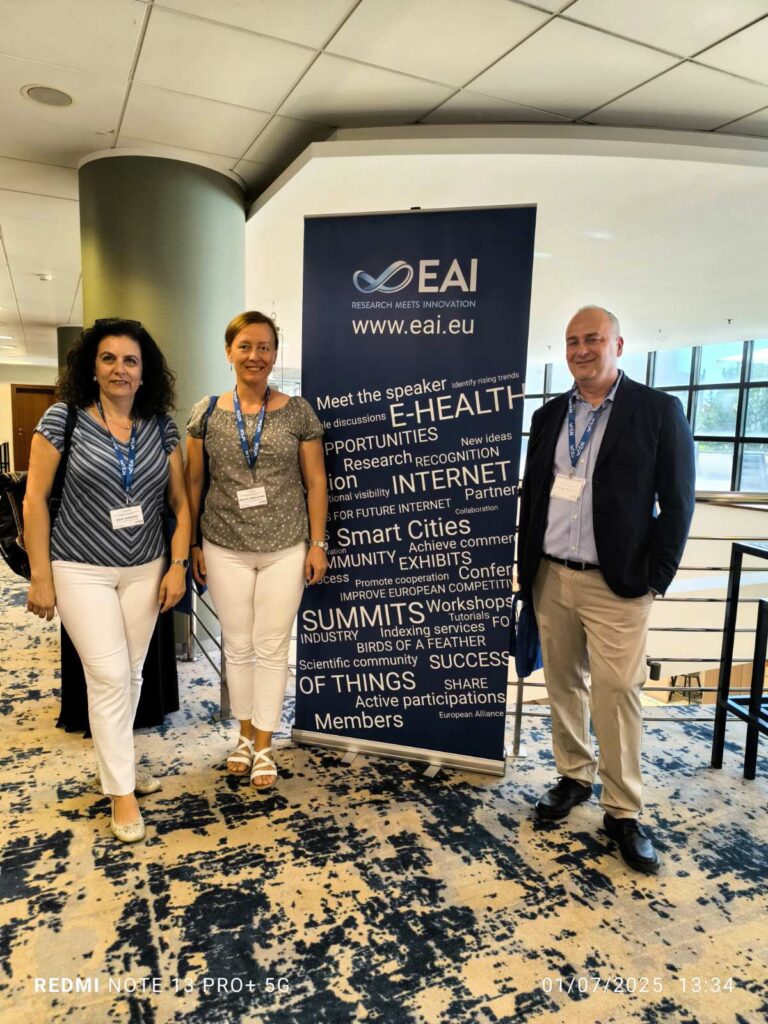
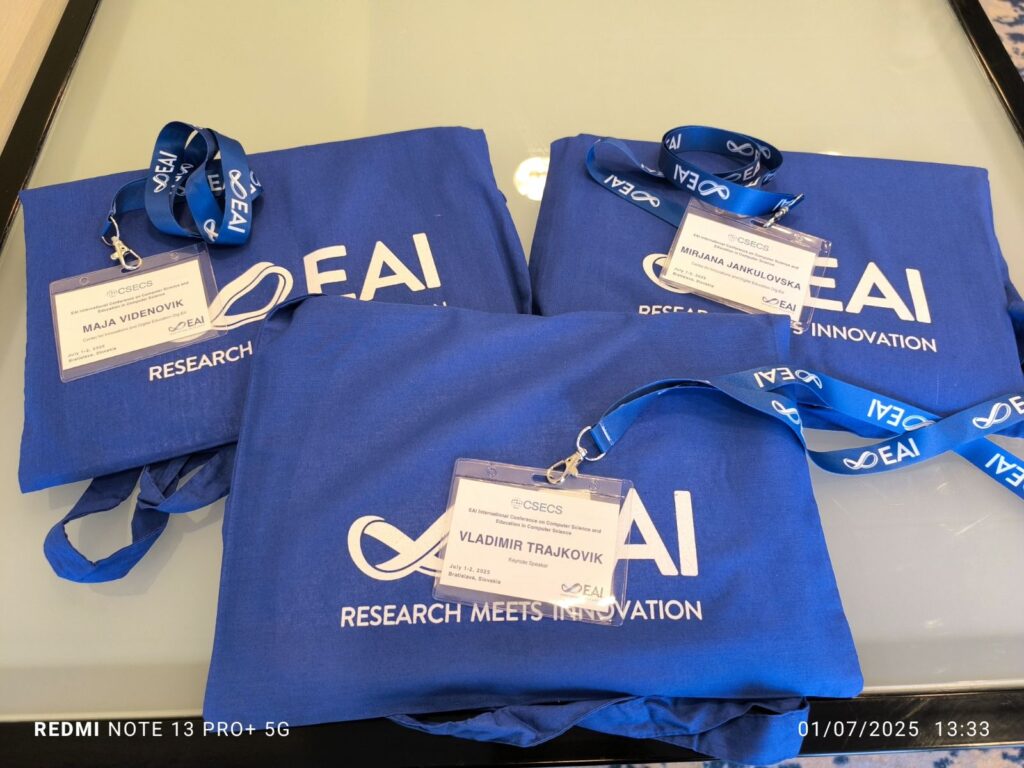
Under the title AI-Powered Storytelling and Game-Based Learning: A Framework for Digital Competence in ICT Education, Vladimir presented a versatile framework that combines AI-driven storytelling with game-based learning to enhance students’ digital competences. Developed as part of the SHIELD project, this approach integrates AI-assisted, narrative-based, multi-level games that create adaptive content, challenges, and interactive scenarios aligned with key educational goals such as digital literacy, ethical thinking, and online safety.
Implemented in a blended format, the framework features a collaborative in-class offline game, complemented by an optional online game for individual reinforcement. Its evaluation methodology includes a pre-test, immediate post-test, and a follow-up test after one month, allowing for measurement of knowledge retention and behavioral changes.
A case study on cyberbullying demonstrated how storytelling and ethical dilemmas can effectively engage students in deep reflection and decision-making. The presentation concluded with practical design insights and recommendations for ICT educators interested in incorporating AI-enhanced game-based approaches into their teaching practice.
The initial results from the implemented framework in four schools in North Macedonia (two primary and two secondary schools) with 224 students were presented. The results underscore the effectiveness of the EduGame-AI Framework in enhancing knowledge acquisition, engagement, and long-term retention. The strong alignment between students’ performance, survey results, and qualitative feedback reinforces its utility as a scalable and replicable model for digital literacy education.
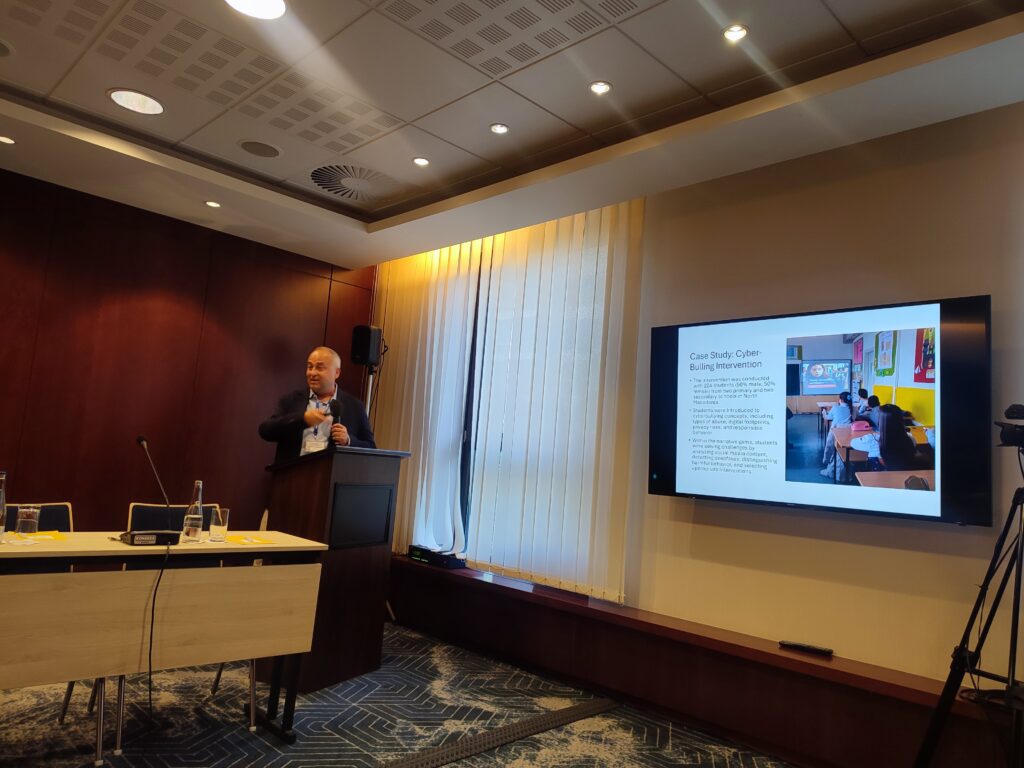
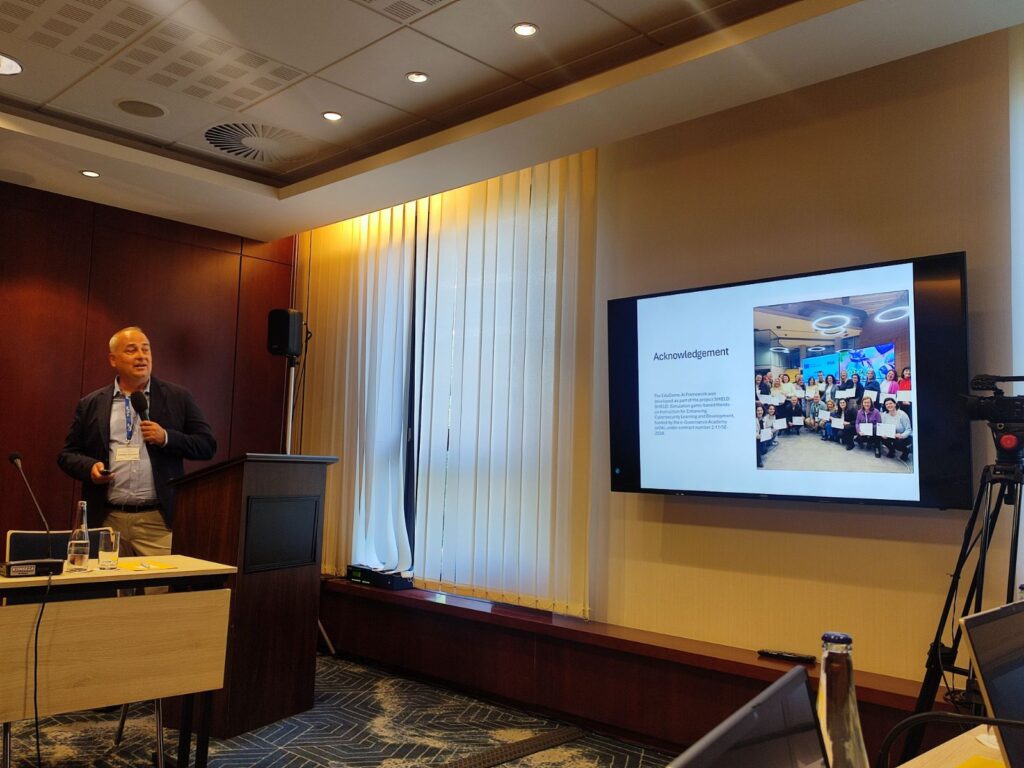
During the conference, Dig-Ed representatives had the opportunity to discuss the project idea and its outcomes with other participants, as well as explore possibilities for future collaboration.
